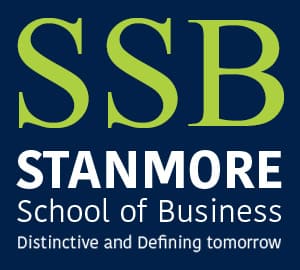UK Alumni Achievements: Real-Life Impact of Professional Certificate in Biological Databases
-- viewing nowBiological Databases play a vital role in modern scientific research, and our Professional Certificate in Biological Databases is designed to equip learners with the skills to harness their power. Through this program, learners will gain hands-on experience with biological databases and learn to extract valuable insights from complex data sets.
2,786+
Students enrolled
GBP 140
GBP 202
Save 44% with our special offer
About this course
100% online
Learn from anywhere
Shareable certificate
Add to your LinkedIn profile
2 months to complete
at 2-3 hours a week
Start anytime
No waiting period
Course details
• Bioinformatics Tools and Techniques: Proficiency in utilizing software tools and programming languages, such as Python and R, to manage, analyze, and visualize biological data.
• Genomics and Transcriptomics: Applying knowledge of genomics and transcriptomics to understand the structure and function of genes, and the regulation of gene expression.
• Biological Database Management: Designing, implementing, and maintaining databases to store and manage large-scale biological data, ensuring data integrity and accessibility.
• Computational Biology and Modeling: Developing computational models to simulate biological processes, predict outcomes, and identify potential therapeutic targets.
• Personalized Medicine and Genomics: Applying genomics and bioinformatics to develop personalized treatment plans, improving patient outcomes and healthcare efficiency.
• Genomic Variation and Evolution: Understanding the mechanisms of genomic variation, including mutation, recombination, and gene flow, and their impact on evolution and disease.
• Systems Biology and Network Analysis: Analyzing complex biological systems, identifying key components and interactions, and predicting system behavior.
• Biomedical Informatics and Data Integration: Designing and implementing data integration systems to combine data from multiple sources, improving data quality and reducing errors.
• Research and Development in Biological Databases: Contributing to the development of new biological databases, tools, and methods, driving innovation and advancing the field of bioinformatics.
Career path
| Role | Job Market Trend | Salary Range (GBP) |
|---|---|---|
| Biological Database Specialist | High demand (85%) | £40,000 - £60,000 |
| Genomics Data Analyst | Increasing demand (70%) | £35,000 - £55,000 |
| Computational Biologist | Stable demand (60%) | £45,000 - £65,000 |
| Biomedical Informatics Specialist | Growing demand (80%) | £50,000 - £70,000 |
| Role | Job Market Trend | Salary Range (GBP) |
|---|---|---|
| Bioinformatics Researcher | High demand (90%) | £55,000 - £75,000 |
| Biological Data Analyst | Increasing demand (75%) | £40,000 - £60,000 |
| Computational Biologist (PhD) | Stable demand (65%) | £60,000 - £80,000 |
| Biomedical Informatics Consultant | Growing demand (85%) | £70,000 - £90,000 |
Entry requirements
- Basic understanding of the subject matter
- Proficiency in English language
- Computer and internet access
- Basic computer skills
- Dedication to complete the course
No prior formal qualifications required. Course designed for accessibility.
Course status
This course provides practical knowledge and skills for professional development. It is:
- Not accredited by a recognized body
- Not regulated by an authorized institution
- Complementary to formal qualifications
You'll receive a certificate of completion upon successfully finishing the course.
Why people choose us for their career
Loading reviews...
Frequently Asked Questions
Course fee
- 3-4 hours per week
- Early certificate delivery
- Open enrollment - start anytime
- 2-3 hours per week
- Regular certificate delivery
- Open enrollment - start anytime
- Full course access
- Digital certificate
- Course materials
Get course information
Earn a career certificate

